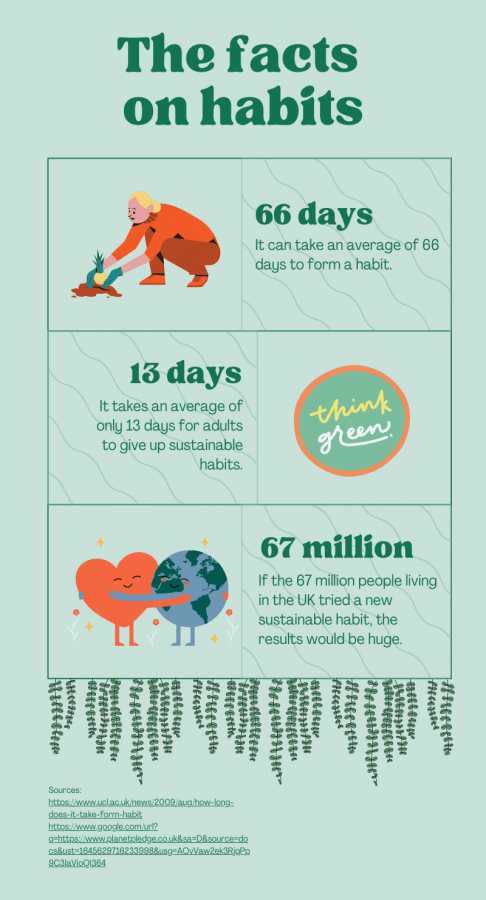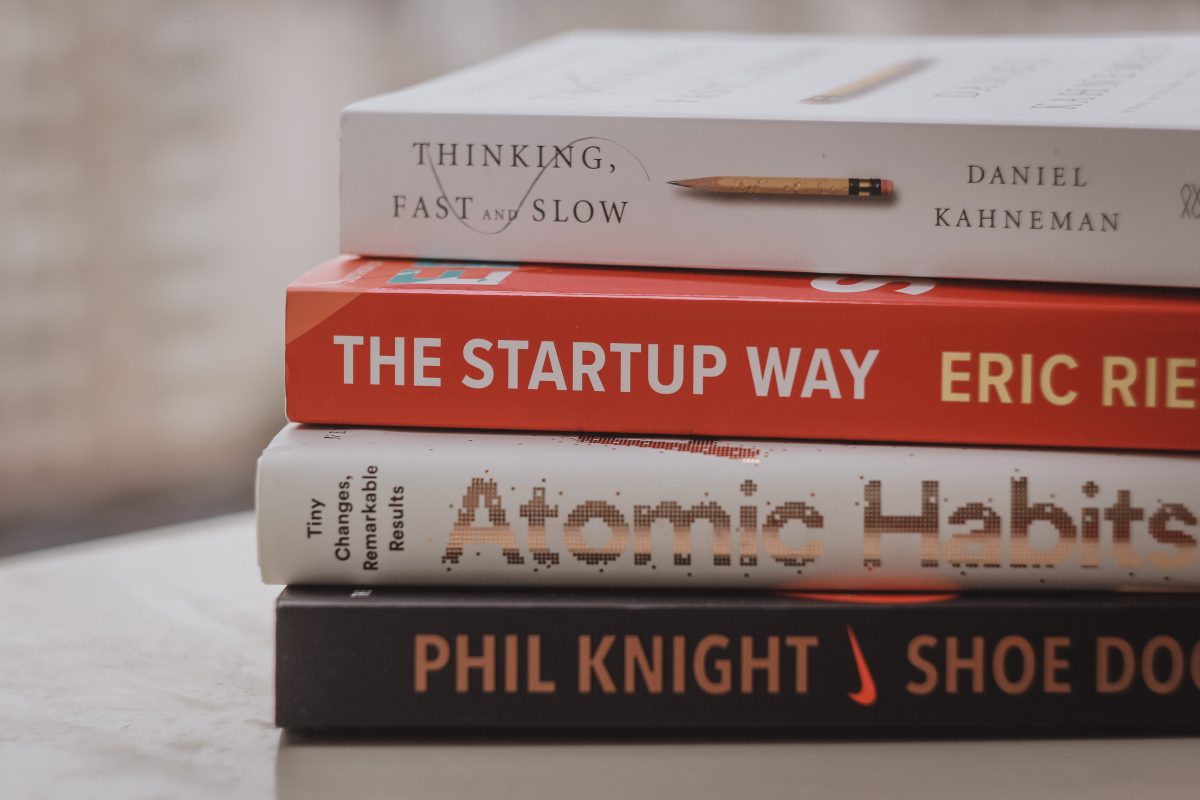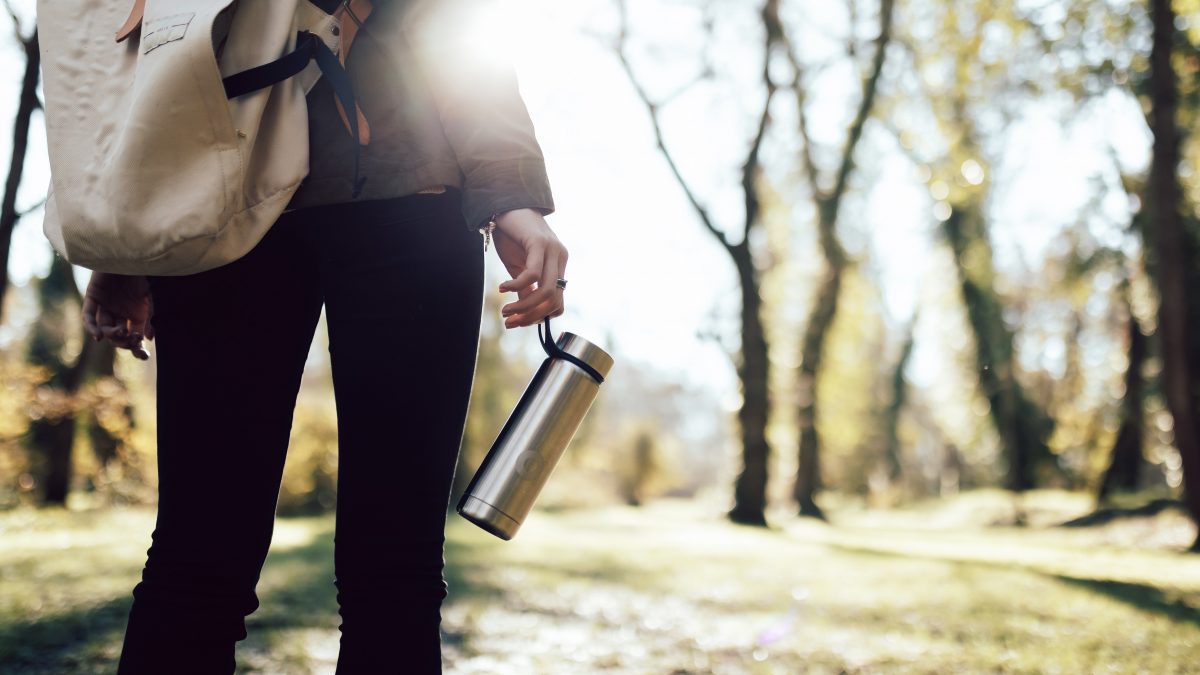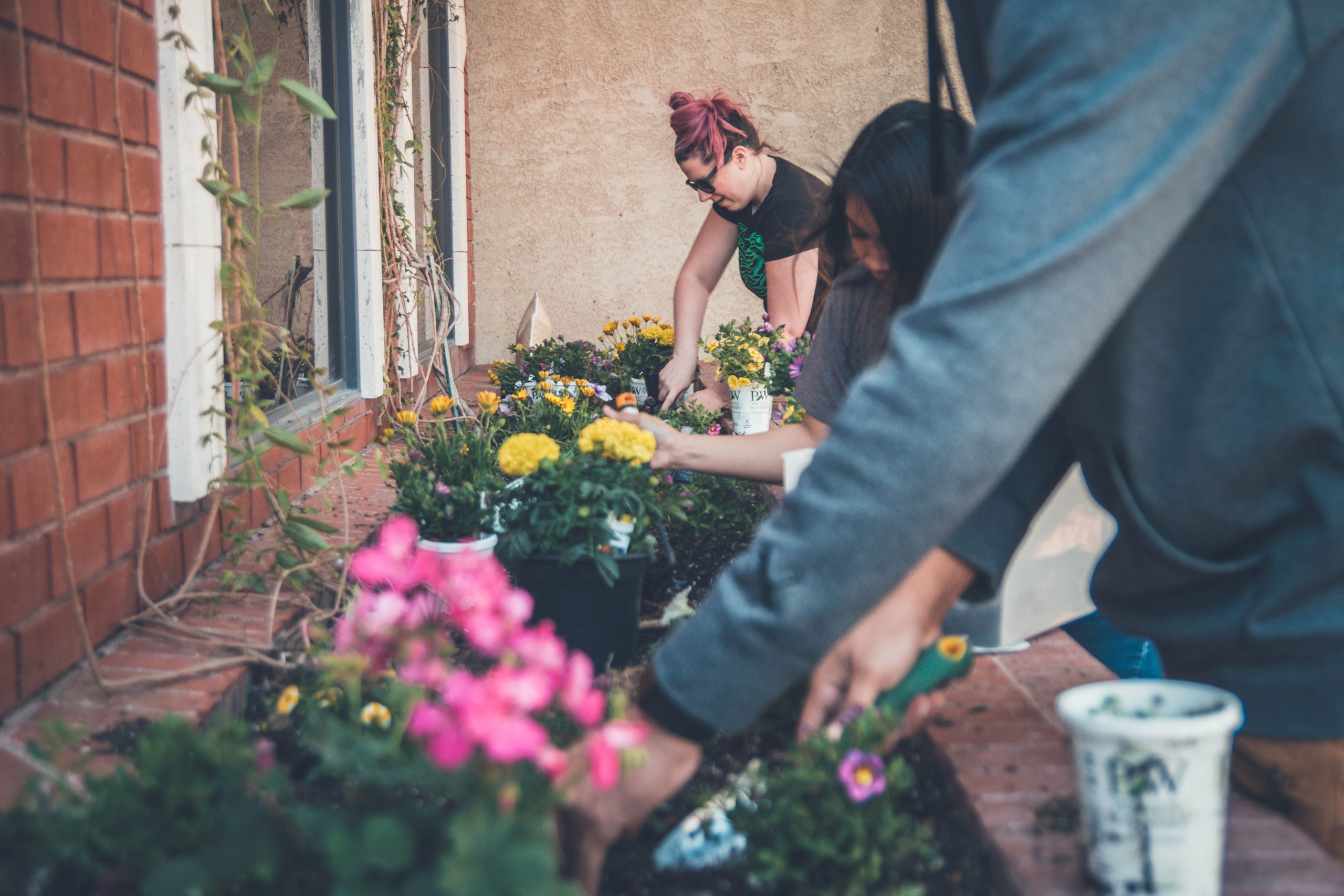Many people believe it takes 21 days to form a habit. However, according to one study on habit forming, it can take an average of 66 days. The truth is that the length of time varies.
However long it takes, there is then the issue of sustaining that habit.
A recent survey conducted by Utilita, as part of its Planet Pledge campaign, found that it takes an average of only 13 days for adults to give up sustainable habits.
Further to this, more than half of those surveyed felt that no matter what they did, they could not improve the climate emergency.
However, it is important to keep in mind that if each of the 67 million people living in the UK tried their hand at a new sustainable habit, the results would be huge.
With that in mind, here are five tips on how to form a habit that lasts a lifetime, as well as some simple ideas for sustainable habits you could try your hand at.

Find your motivation
In order to have any chance of being successful in forming a new habit, you have to have a motivation.
As we are talking more specifically about sustainable habits, you will most likely share the common motivation of knowing that you are doing little things to help the environment every day.
Whatever your reasoning, focus on it, even write it down if that helps, and use it as your incentive to kickstart and maintain your habits.
Start small
Now that you have found your motivation, the next step is actually starting.
There is no need to go charging full speed ahead as you may be setting yourself up for failure.
Rather than trying to do something amazing from the beginning, start small and gradually improve.
As James Clear writes in his book Atomic Habits: “Think about your habit as a way to grow 1 per cent per day. Improving just a little bit each day results in big changes over time.”
KU environmentalism student and sustainability assistant for the student union Zoe Racette gave her advice on beginning to build sustainable habits: “Start by increasing the longevity of things you’re using in your daily life. For instance, instead of buying a new top for a night out, wear something you already own.
“Instead of tossing the glass jar that came with your jam, save the jar and use it in some other way. If something breaks, consider fixing it rather than tossing it and getting a new one. I find this is the easiest way towards working on sustainable habits.”

Try habit stacking
In his book Tiny Habits Brian Fogg outlines his method of attaching a new habit to an existing one in order to increase your chance of success.
You probably have very strong habits and connections that you take for granted each day, so take advantage of them. Identify a current habit you already do and stack your desired habit on top.
For example, you may write a list before heading out to the shops, so stack on top of that the act of grabbing a reusable tote bag.
Similarly, you could stack grabbing your reusable coffee cup on top of putting your coat on. The added bonus of this one is the 20p discount off hot drinks which KU offers when students use a reusable cup.
Find a partner or small group
Building a new habit with a friend can be a lot more fun and motivating than just doing it by yourself.
Humans are social creatures and the behaviours of the people around us have a huge influence on our own.
A study found that the exertion of mental effort is infectious, meaning that merely doing a task next to someone who is exerting a lot of mental effort on it will help you do the same.
Additionally, sharing what your plans are to maintain a new habit creates a sense of accountability.
So, chat with your friends and the people in your life about the sustainable habits you would like to implement and see if there are any you share.
This could mean deciding to stop buying plastic bottles and start using stainless steel or glass alternatives.
You could also consider having one meat-free meal a day, or saving leftovers and making a second meal from them.

Be kind to yourself
Finally, in the process of forming new habits, you must remember to be kind to yourself.
If you have missed a day, there is no need to beat yourself up about it as, according to a study published in the European Journal of Social Psychology, missing any single day of a particular habit has no impact on your long-term ability to stick to it.
In Atomic habits, Clear defines habits as “behaviours that we repeat consistently. However, they are not behaviours that we repeat perfectly.”
He goes on to explain, however, that it is important to not miss a habit twice in a row as two mistakes are the beginning of a pattern.
To avoid this happening and to get back on track if it does, Clear advises that you put all of your energy toward starting the good behaviour, set a schedule for your habits, and eliminate the things that take you off track.
So get back on the horse, or rather bike, if that is the sustainable habit you are implementing, and enjoy that amazing feeling of doing your bit for the planet.

